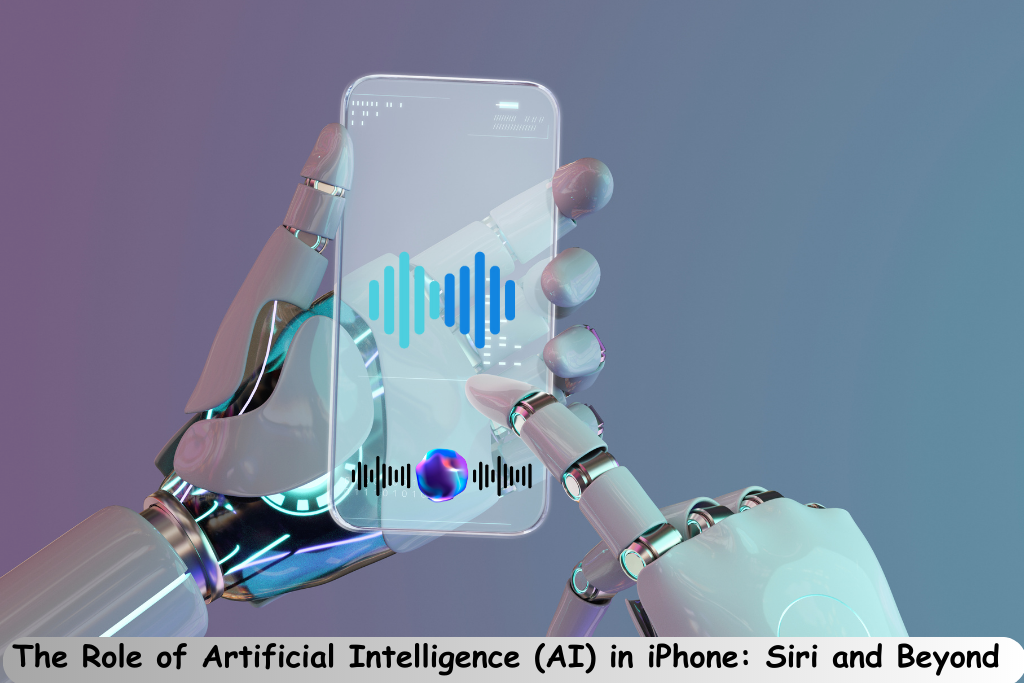
Artificial Intelligence (AI) has undoubtedly become one of the most transformative technologies of our time, revolutionizing various industries and aspects of our daily lives. One of the prime examples of AI’s impact is Apple’s virtual assistant, Siri, which has taken the world by storm since its introduction in 2011. Siri, integrated into iPhones and other Apple devices, has become a prominent symbol of the potential and power of AI. Beyond its initial release, Siri’s evolution exemplifies how AI is continually shaping the way we interact with technology and foreshadows its exciting potential in the future. Through this blog we at Genius CPR will examine how Siri has influenced the AI landscape.
The Birth of Siri
When Apple acquired Siri Inc. in 2010, they set the foundation for what would become the first widely recognized virtual assistant. Siri’s birth was a culmination of years of AI research, natural language processing, and machine learning. Initially, Siri functioned as a voice-activated personal assistant, capable of understanding and executing basic tasks, such as setting reminders, sending messages, and answering general knowledge questions. It relied on a blend of AI techniques, including speech recognition, language understanding, and semantic analysis.
Advancements in Natural Language Processing (NLP
One of the critical aspects of Siri’s success and its continued relevance lies in its ability to understand and interpret natural language commands. As AI research progressed, so did Siri’s NLP capabilities. Siri learned to comprehend more complex sentences, handle multiple language variants, and offer more accurate responses. Apple’s continuous investment in AI research has allowed Siri to understand context, enabling more dynamic and meaningful interactions with users.
Machine Learning and Personalization
With each interaction, Siri gathers data and learns from user behavior. The AI system employs machine learning algorithms to adapt and personalize responses based on individual preferences. Over time, Siri has become more adept at predicting user intentions, providing personalized suggestions, and tailoring its responses to match user habits. This level of personalization has significantly enhanced the user experience and cemented Siri’s place as a valuable daily companion for millions of users worldwide.
Integration with Third-Party Apps
As Siri’s capabilities expanded, Apple recognized the potential of integrating the virtual assistant with third-party applications. This decision allowed developers to harness Siri’s power and incorporate voice commands into their apps. Users could then interact with a broader range of services, all through voice commands, from ordering a ride to managing smart home devices. This level of integration underscores the growing symbiotic relationship between AI and various application ecosystems, amplifying AI’s influence beyond the device itself.
Natural User Interface and Beyond Siri
Siri’s impact extends beyond just the iPhone and the virtual assistant’s dedicated devices. The technology has paved the way for broader implementation of natural user interfaces (NUIs), which seek to make technology more intuitive and accessible. NUIs, powered by AI, aim to enable interactions with machines using gestures, speech, and other natural means of communication, reducing the reliance on traditional user interfaces like keyboards and mouse. This shift has the potential to revolutionize how we interact with technology, making it more inclusive for users of all ages and backgrounds.
AI in the Internet of Things (IoT)
The success of Siri has demonstrated how AI can seamlessly integrate with our daily lives through mobile devices. Beyond smartphones, AI is playing a crucial role in the development of the Internet of Things (IoT). AI-powered virtual assistants, akin to Siri, can be integrated into smart homes, wearables, and various connected devices, creating a network of smart objects that interact intelligently with users. This interconnectivity and AI-driven automation can further streamline our lives and improve efficiency.
The Future of AI
As AI technology advances at a rapid pace, the future holds exciting possibilities for Siri and similar virtual assistants. Continued advancements in machine learning, natural language processing, and computer vision will further enhance Siri’s capabilities and enable it to understand and assist users in even more complex scenarios.
Moreover, AI’s integration with augmented reality (AR) and virtual reality (VR) may give rise to more immersive and interactive experiences. Imagine interacting with Siri through AR glasses, receiving real-time information, and seamless navigation without having to pick up a phone.
Conclusion
In conclusion, Siri’s journey highlights the transformative role of AI in shaping our digital interactions and daily lives. It exemplifies the potential of AI-powered virtual assistants to revolutionize user experiences, personalize interactions, and create a more natural and accessible interface with technology. As AI continues to advance, it will undoubtedly play an ever more prominent role in not just Siri but also a myriad of other applications and services, revolutionizing the way we interact with technology and propelling us into a future where AI is seamlessly integrated into every aspect of our lives.
Do you encounter any problems with your iPhone device? One of the best iPhone repair shops in your neighborhood, Genius CPR, will assist you with any issues you run into, regardless of the model of your iPhone. We will help you take care of and use your iPhone effectively. If your smartphone or iPhone ever has issues, you can look up iPhone repairs near me online. It will give you results as –Genius CPR, simply the best.

